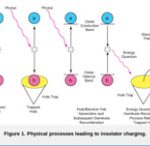You are currently viewing SemiWiki as a guest which gives you limited access to the site. To view blog comments and experience other SemiWiki features you must be a registered member. Registration is fast, simple, and absolutely free so please,
join our community today!
Are you interested in any of these?
- Internet of Things
- Trends and Forecast for Fabs
- Inflections Points
- Semiconductor CAPEX
- Cost Effective Scaling
- Prospects for 450mm
- Future of EUV
- Mobile Machine Learning
- Robotics/Drones
- Cybersecurity
- Used Equipment Markets
- World Fab Databases
- Free breakfast
No? Then I think you got the wrong… Read More
In my last blog here, I talked about last 30+ years of semiconductor IC market. While we have seen this market growing at CAGR of ~9% over last 30+ years, the CAGR of current decade is expected to be at just ~4%. Although the base size of the overall semiconductor IC market is quite healthy, expected to be at ~$378B by 2019, we cannot hope… Read More
There is quite a debate raging on whether Samsung Foundry is truly in production at 14nm. The word amongst the fabless semiconductor ecosystem is yes and this comes from two very large fabless companies that are reportedly using Samsung for 14nm and have even started looking at Samsung 10nm. Of course you can Google for stories by… Read More
- ASML making progress – but is it fast enough?
- ASML has missed 10nm , can it catch 7nm? An economic question
- Day one at SPIE- Better tone than last year but still cautious
1000 simulated wafers versus 700 simulated
At the opening of the SPIE conference ASML announced that TSMC had reached 1000 wafers a day “exposed”… Read More
Silvaco TCAD Webinarby admin on 01-26-2015 at 4:50 pmCategories: EDA
TCAD is a somewhat specialized area since not that many people design semiconductor processes compared to the number who design chips. Bit without TCAD there would be no chips. One area where the two domains intersect is that of SEE, where neutrons (mainly) can cause a flop or a memory bit to change. Since we live on a radioactive planet… Read More
I’m an avid cyclist that rode some 6,744.3 miles in 2014, according to www.strava.com, a free web site and popular app for road bikers like me. At CES this week I’ve read about many creative devices and apps to make your cycling experience better, so here’s my take on all of it.… Read More
As I have mentioned before, Apple has changed the way we live on many different levels (iPod, iTunes, iPhone, iPad, etc…) and the Apple Ax SoC series is no different. You have to ask yourself how is Apple able to churn out a new industry leading SoC EVERY year? I can assure you design reuse is a big part of that answer.
One of the companies… Read More
As I have mentioned before, there are very few secrets in Silicon Valley. Just last week I was minding my own business at a Starbucks when I overheard two engineers complaining about Samsung 14nm shuttles being delayed. They had badges on but I won’t out them because it could have easily been any of the fabless companies in Silicon … Read More
1964 Vision, Volume and Moore’s Law
The 1964 New York World’s Fair saw Lee Iacocca, then a young 40 year old General Manager, introduce a car that inspired “total performance” and was for a “young America out to have a good time.” This young America would become the baby boomer generation. The Mustang was revolutionary in its affordability,… Read More
So it’s true. IBM is selling its semiconductor division to GlobalFoundries. Actually, selling is a sort of euphemism for paying them $1.5B to take it off their hands. At least according to Bloomberg. There have been rumors for weeks that IBM wanted to pay $1B to get rid of the division, but GF wanted $2B. Looks like they split… Read More



